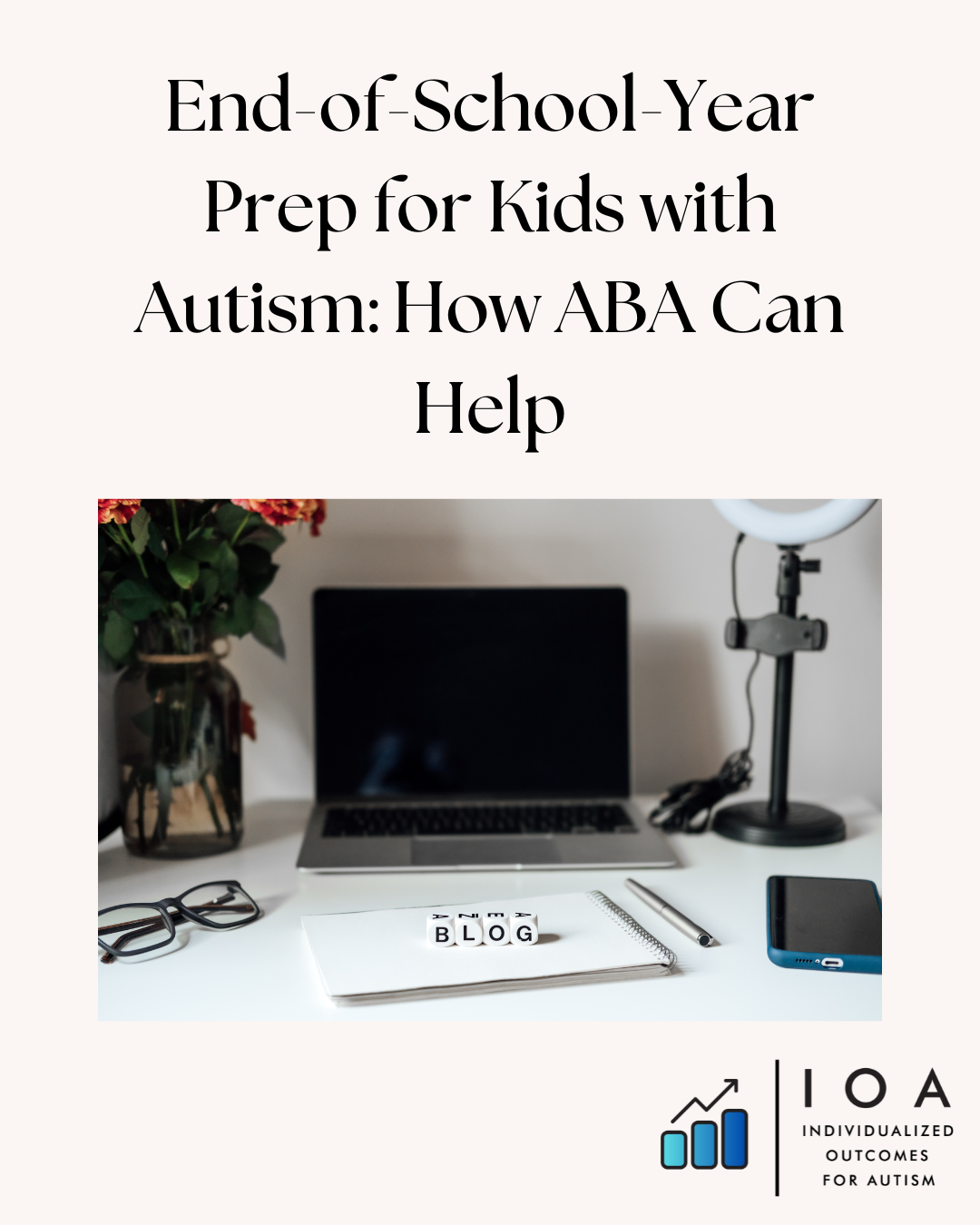End-of-School-Year Prep for Kids with Autism: How ABA Can Help
By Angela Khater, MA, BCBA | Clinical Director at IOA
As the school year winds down, it’s the perfect time to start thinking about how to support your child with autism over the summer. At IOA, we understand that transitions can be challenging, but they also present wonderful opportunities for growth. Here’s how we recommend using ABA strategies to help your child make the most of this transition and set them up for a summer of success!
1. Use Visual Supports to Prepare for the Transition
Many children with autism do best when they can see what’s coming next. Visual schedules, calendars, or social stories can help your child understand the change from the school routine to summer break. Practice reviewing the new summer schedule together. Whether it’s more time at home, therapy sessions, or summer camps with their RBT.
2. Boost ABA Hours to Build New Skills
Summer is a fantastic time to increase ABA hours. Without the demands of school, your child has more time and energy to focus on skill-building. Increasing ABA hours allows us to work on goals like daily living skills, social interactions, and self-help routines that might not fit into the school year. It’s also a great time to generalize skills to new environments, like the park, pool, or summer activities!
3. Sign Up for a Summer Camp with an RBT
If your child thrives on structured, supportive environments, consider enrolling them in a summer camp run by ABA professionals. Camps with RBTs can help your child work on social skills, group activities, and independence in a fun, motivating setting. It’s also a chance to practice routines that will be useful when the new school year begins.
4. Practice School Readiness Skills
Even during the summer, we can use ABA techniques to practice skills that will help in the fall. This might include:
Following directions
Transitioning between activities
Waiting for a turn
Asking for help when needed
By keeping these goals fresh, your child will be better prepared for the next school year.
5. Create a Summer Routine
ABA focuses on predictable routines and clear expectations. Work with your BCBA to create a daily routine for summer that includes structured activities, movement breaks, and downtime. This routine can help reduce anxiety and prevent behavioral challenges.
6. Involve the Whole Family
ABA isn’t just for therapy sessions, it’s a way of approaching everyday life. Use positive reinforcement at home to motivate your child. Break tasks into small steps. Offer choices and let them practice independence in daily activities like meal prep, dressing, or cleaning up toys.
Final Thoughts
The end of the school year doesn’t have to mean a break from growth. In fact, it’s the perfect time to increase ABA support, strengthen key skills, and set your child up for success in the coming school year.
If you’re interested in increasing ABA hours this summer with our team, reach out to us at IOA. We’d love to work with you to create a plan that keeps your child learning, growing, and thriving!

